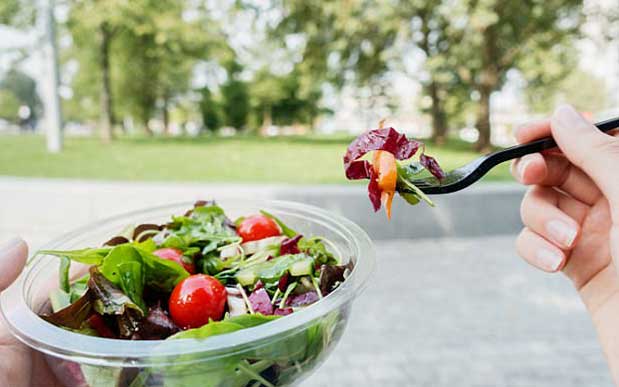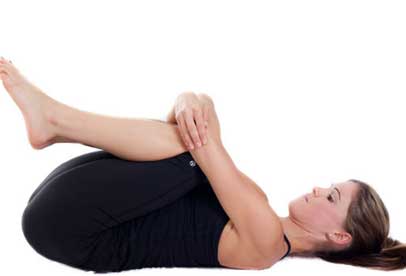
The Key to Healthy Aging
September is nationally recognized as healthy aging month, a time to focus on encouraging personal responsibility for health and well-being in all dimensions of life (physically, socially, mentally and financially). There may not be a tangible fountain of youth that promises eternal life and continuous health, but we hold more power than we may realize in the daily choices we make and the habits we adopt and maintain throughout our lives.
Living an active and balanced lifestyle that includes a combination of aerobic, muscular strength, and flexibility exercises helps ward off a range of diseases, slows the rate of muscle tissue loss and improves activities of daily living. Here are some of the cardiovascular and cognitive benefits that come with living a healthy lifestyle.
The Cardiovascular Benefits
The heart and lungs naturally experience a reduction in efficiency and strength over time; this is especially true in sedentary populations. With advancing age, the heart must work harder to accomplish the same amount of work, both at rest and during activity. Resting heart rate also declines at a rate of one beat per minute each year (Murray and Kenney, 206). Similarly, the lungs lose some of their ability to supply adequate amounts of oxygen to the working tissues and organ systems. Regular exercise, however, helps increase systemic blood flow and oxygen supply.
Becoming and remaining physically active and incorporating aerobic exercise (walking, aquatics, cycling, etc.) can lower and control blood pressure, which reduces the overall stress on the heart. Activity also can help lower cholesterol levels and prevent atherosclerotic build up in the arteries. Further, individuals who remain active reduce their risk of all-cause mortality and premature death from preventable diseases. So, while you may not be able to outlast Father Time, you can certainly walk far enough ahead that it makes it difficult for him to catch you.
The Cognitive Benefits
The brain is a truly remarkable puzzle. In fact, modern medicine could study the brain indefinitely and still not learn everything there is to know about its mysterious network. The brain is continually changing in size and functionality. Typical age-related changes include a decrease in brain weight and size (not significant, but still a reduction), network size and blood supply. The aging brain also experiences memory loss, a decrease in inductive reasoning skills and mental acuity, a decrease in spatial awareness and the development of balance issues.
No one is immune to changes in the brain, but exercise and physical activity (along with proper diet) significantly slows the rate of cognitive dysfunction. Think about it in these terms?what′s good for the heart, is also good for the brain.
Overall, exercise improves memory, enhances thinking and problem-solving skills, boosts brain supporting hormones, enhances blood and oxygen flow to the brain, acts as a natural anti-depressant and stress reliever, and it improves focus, allowing you to concentrate on difficult or challenging tasks. In short, keep on your toes to keep the mind sharp.
The Truth of the Matter
Exercise is and will always be one of the primary keys to living well across the lifespan. We cannot stop or reverse the circle of life, but we can influence how we experience that journey. And it′s never too late to start making healthy choices to better your future.
Related News

How To Achieve The Perfect Nail Shape

What dangers are hidden in your pillow?

15 Best Heart-Healthy Foods

Carbohydrates and sugars

Brain health food guide for older adults

Sari saga from Bengal

Study finds dramatic weight loss can be achieved WITHOUT counting calories

9 Super Simple Exercises to Reduce Belly Fat
Most Read
★8 Fruits that Burn Fat: Include Them In Your Diet For Great Health Benefits
★Pasta eaters may have better diet quality: study
★Could laser hair removal give you CANCER?
★7 Filling Foods to Keep Belly Fat at Bay
★Popular weight loss strategies
★Do you want to be paid for sleeping well at night?
★Expert reveals the snacks you should eat, according to your body type
★Research reveals surprising health benefits of chewing your food
★How To Achieve The Perfect Nail Shape
★10 Ways To Use Sesame Oil For Beautiful Skin
★8 Practical Tips to Lose Weight Without Dieting
★Correlation Between Almonds and Weight Gain
★Cancer warning over skin bleaching treatment
★5 Hot Yoga Poses For Rapid Weight Loss
★10 Weight Loss Tips to Make Things Easier (and Faster)
★10 Natural beauty tips for face you must try
★Breakthrough drug restores more than 90% of lost hair in most patients
★Everyday Medications You Should Never Take When You Exercise
★The Brilliant Food Combo That Helps You Burn More Fat
★5 foods for healthy skin
★Manage oily skin in winters with these steps
★Natural Ways to Remove Blackheads on Face and Nose
★Learn How To Do Pearl Facial At Home To Get Naturally Glowing Skin Instantly
★Brain health food guide for older adults
★Hard work, no pay linked to mental health issues in comedians
★15 Powerful Asanas of Yoga to Reduce Belly Fat
★Man has lived with giant neck for 13 years after going to doctors for help
★How mood and eating behaviour are connected
★Teenagers use social media posts to appear attractive to friends
★Top 10 Unknown Beauty Tips and Tricks
★10 questions about laser hair removal
★Plum goodness for your hair!
★Just ten minutes of play a day can help children reduce their risk of developing heart disease and diabetes later in life
★Women found to appear up to 20 years younger if they stay out of the sun
★Ways to Use Honey for a Glowing Skin
★Natural Herbal Gummies
★6 Best Oils for a Naturally Clear and Glowing Skin
★Skinny jeans and big fluffy hoods contribute to back pain
★Recycling temple waste along the Ganges with Help Us Green
★Yoga Asanas To Prevent Hair Loss
★Education can boost men?s chances of online dating
★Learn to Do Vinyasa Yoga for Weight Loss
★Dairy and vitamin D supplements protect against bone loss
★Scientists found effective dandruff treatment
★Top Fitness Stars Share Their Most Common Workout Habits
★Legumes, nuts and kale can help you get big muscles
★Know why milk should be a part of your beauty regimen
★How to prevent peanut allergies in children?
★5 surprising beauty benefits of amla
★Aerobic training can help reverse ageing
